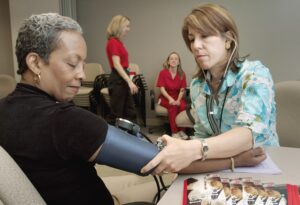Make $375 daily. Without Lifting a Finger – Act Now
Many different aspects of sexual health can affect you, and this blog will discuss some of the more common and important ones. Sexual health is defined as the physical, emotional and mental aspects of sexual well-being. Sexual health includes: –
Physical: The ability to have pleasurable and safe sex, free from sexually transmitted infections (STIs) and other reproductive health problems.
Emotional: The ability to feel good about one’s body, have self-esteem, and feel comfortable with one’s sexuality.
Mental: The ability to think clearly about sex and sexuality in general, not just during sex but also before and after.
Reproductive Health
The female reproductive system comprises several organs and structures that produce, prepare and transport egg cells from the ovaries to the uterus. Men are not often aware of their reproductive health, leading to them being at risk for certain health conditions. The lack of awareness and education about male reproductive health is a significant problem. This is because men are unaware of the dangers they face, so they may not be taking the necessary precautions to protect themselves from them. They may also be unable to recognize the symptoms or warning signs that something might be wrong with their reproductive system.
Sexually Transmitted Infection and Prevention
Sexually transmitted infections (STIs) can be passed to another person through sexual contact. STIs include both bacterial and viral infections. The most common bacterial STIs are chlamydia, gonorrhoea, syphilis, and trichomoniasis. Viral STIs include genital herpes, human immunodeficiency virus (HIV), and human papillomavirus (HPV). Some people may not know they have a sexually transmitted infection because they do not have any symptoms or the symptoms are subtle.
In the US, there are more than 20 million new infections of sexually transmitted diseases each year. These infections have no symptoms until they become active. There are a few ways to prevent sexually transmitted diseases: getting screened regularly, using condoms and reducing the number of partners you have sex with. Because of the lack of symptoms, many people do not realize they already have an STD until it becomes too late for them to do anything about it.
To protect yourself from STDs, you should talk to your doctor about getting tested for these infections, practising safe sex by using condoms and limiting your number of sexual partners. There are many ways to prevent getting an STD, including knowing your partner’s sexual history, practising safe sex (i.e., using protection), and getting vaccinated if you are at high risk for contracting certain STDs like HPV and hepatitis B (an immunization is available to prevent this).

Is sexual dysfunction a common problem?
Studies show that sexual dysfunction is a common problem among men and women. Male sexual performance can be affected by erectile dysfunction, premature ejaculation and delayed ejaculation, while many women experience challenges with arousal, lubrication, orgasm and pain during sex. Sexual functioning can be improved through many techniques or treatments, including medication, surgery or a combination of treatments. Sexual health problems are prevalent in women. More than half of all women suffer from some sexual dysfunction by the age of 40, and this causes them to experience low self-esteem and a decreased quality of life. While these problems can sometimes be solved with one specific treatment option, other times, it’s a mix of different treatments that will work best for an individual woman. Various options that should be considered when treating these female sexual dysfunctions are:
- Psychotherapy, antidepressants, and medicine.
- Fitness programs, pelvic floor exercises.
- Hormone therapies.
- Vaginal dilators and sex toys.
Women who experience sexual difficulties may benefit from psychotherapy, medication, or other therapeutic options. Recent research has shown that for women who are having difficulty with sexual function, it can be helpful to combine different types of interventions to achieve the best results. In general, physicians recommend either psychotherapy or counselling when first starting treatment. This is because they believe the patient should have a more comprehensive understanding of their dysfunction before taking any medication. Some physicians also use other forms of therapy as an alternative to drugs during the first few months of treatment when success rates are higher than with drugs alone. Hopefully, this article has helped you learn more about sexual health and how it affects you. Remember that prevention is critical to maintaining your sexual health.to know more, refer here
Sponsored links


